Accounting Software is a complex application that enables businesses of any size to manage data, especially financial data, and ensure that all resources end up in the right place.
Any such software that is good has the ability to gather, analyze, summarize, and report financial data, and some even go the extra mile to automate certain tasks, implement contingency strategies, and allow for custom functions.
Here is a list of the best accounting software for Linux platforms that are not only open source software but also free or low-cost.
1. Apache OFBiz
Apache OFBiz is a free, open-source, and a cross-platform suite of business apps that offer several out-of-the-box (OOTB) modules for advanced ERP tasks such as order management, contracts, payments and billings, catalog management, e-commerce, and many others.
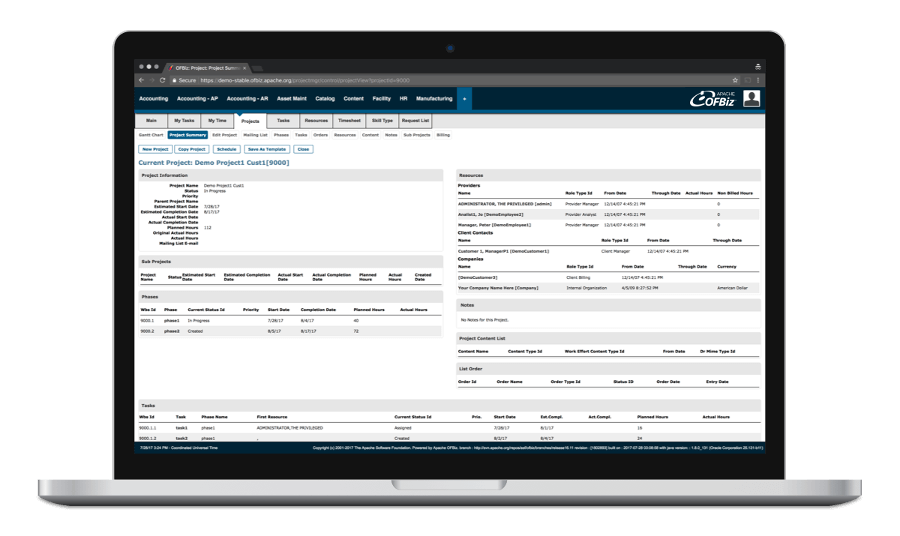
2. FrontAccounting
FrontAccounting is an Enterprise Resource Planning software aimed at large businesses especially companies in sales and manufacturing. Its features include managing payments, items and inventory, assets, invoices and credit notes, purchase and sales orders, a built-in ledger with a budget, etc.
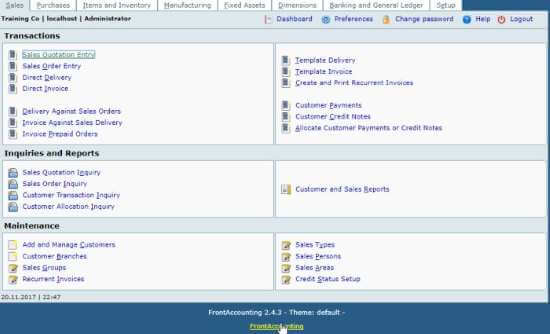
3. Openmiracle
Openmiracle is a free and open-source accounting software with all the features necessary for managing any type of business including flexibility thanks to its customization options, a beautiful UI, and plugin extensions.
It’s simple to use but also strong and adaptable, following expert accounting rules for accurate reports and balanced books. Its name comes from a combining Open (for free and open source) with miracle (for managing inventory Revenue Assets Capital Liability Expense.
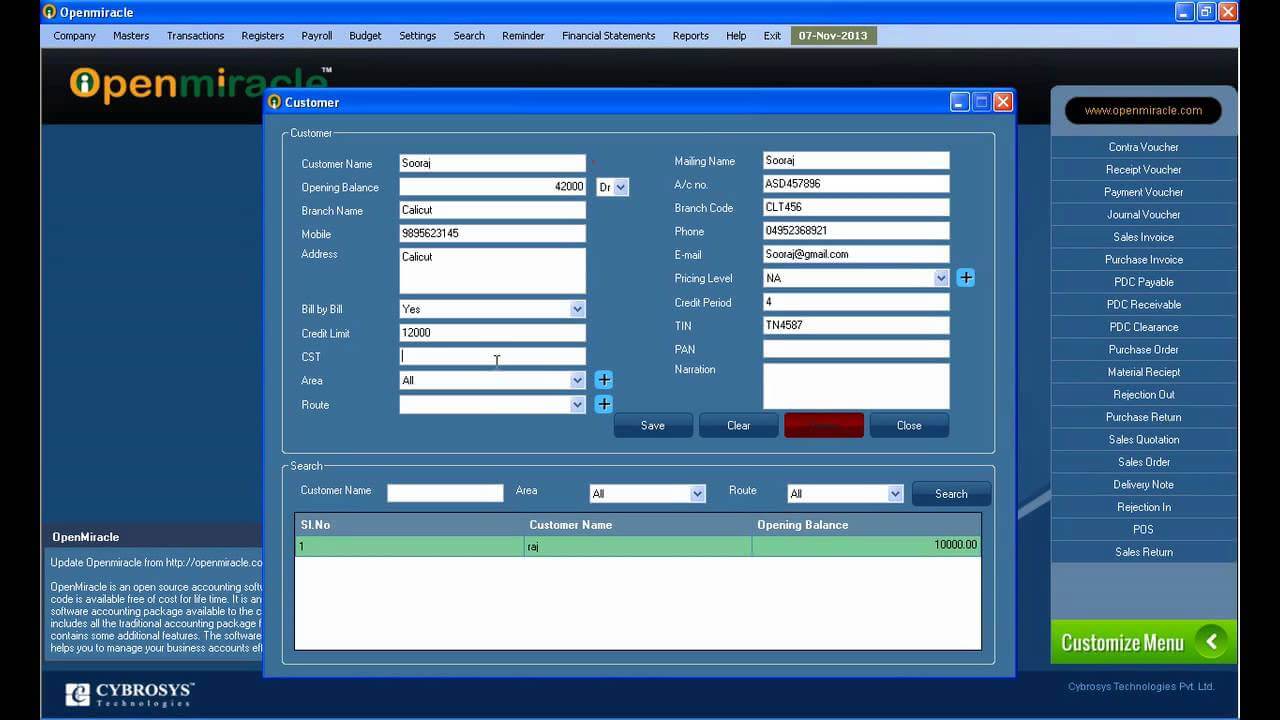
4. GnuCash
GnuCash is a free and open-source cross-platform accounting software for personal and small businesses. It is designed to be used as a checkbook register with the ability to track income and expenses, bank accounts, stocks, etc.
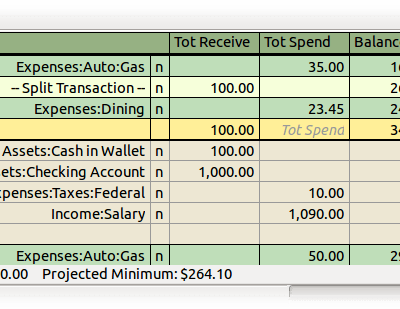
5. Akaunting
Akaunting is a free and open-source online software aimed at small businesses and Freelancers in order to facilitate their accounting activities.
Akaunting makes managing your money online easy and free. It has everything you need – from invoicing to tracking expenses and handling accounting tasks.
It features a beautiful, colorful UI and can be used from any device connected to the Internet to manage transactions, create invoices, receipts, and reports, monitor cash flow, etc.
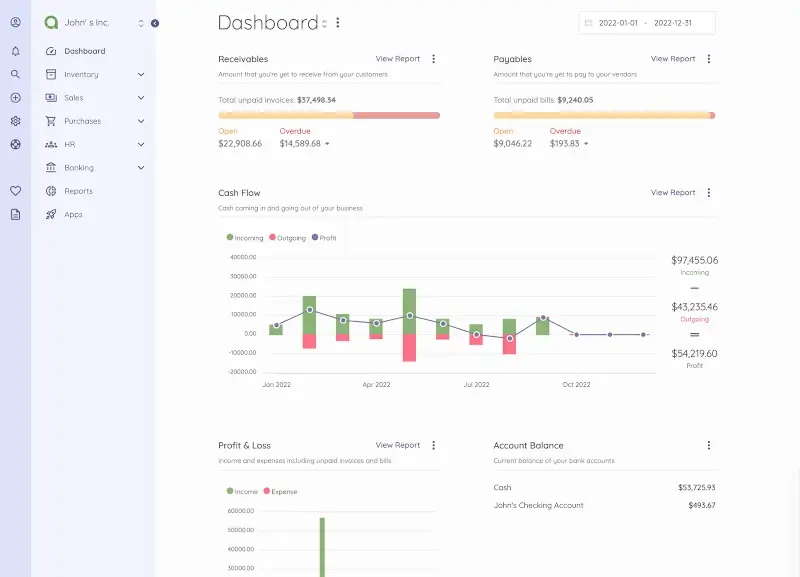
6. LedgerSMB
LedgerSMB is an accounting application that aims to liberate small and mid-size businesses by providing users with invoicing, inventory management, quotations, order processing, document exports, general ledgers, etc. for them to build their business.
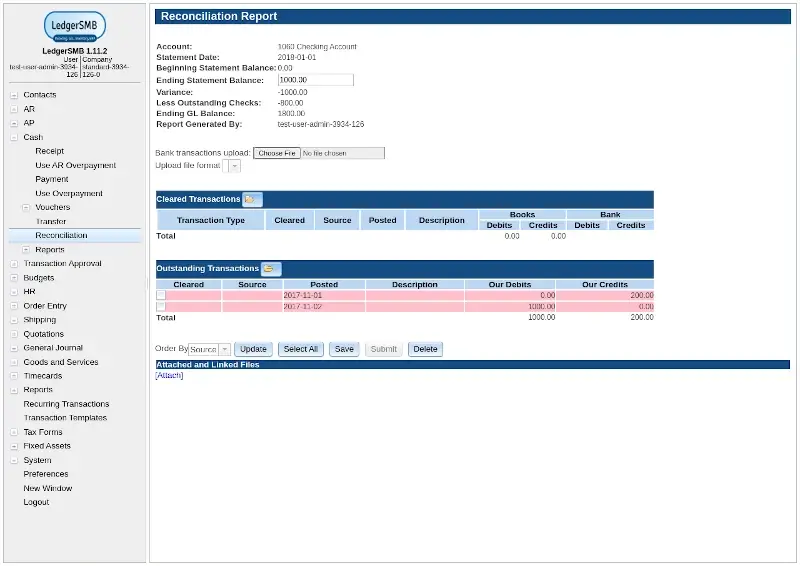
7. Compiere ERP
Compiere ERP is a modern, low-cost open source ERP and CRM business software aimed at small and medium-sized businesses involved in retail, distribution, and service and manufacturing.
It has a community edition that offers various features for several business models save for support from Aptean and automated upgrade tools – those are only available to enterprise users.
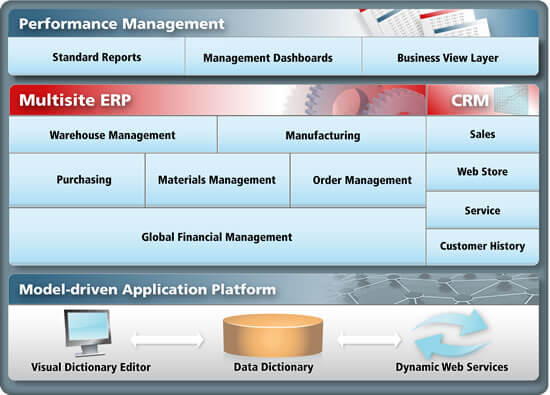
8. Manager
Manager empowers users with robust financial management capabilities on the open-source platform. It provides small businesses, companies, and organizations e.g. dental clinics, science labs, wholesalers, etc. ERP functions for managing their accounting processes, customers, reporting, and a ton of other features.
You can do everything on your computer without the internet. If the internet goes out, you won’t lose your work or access to your programs.
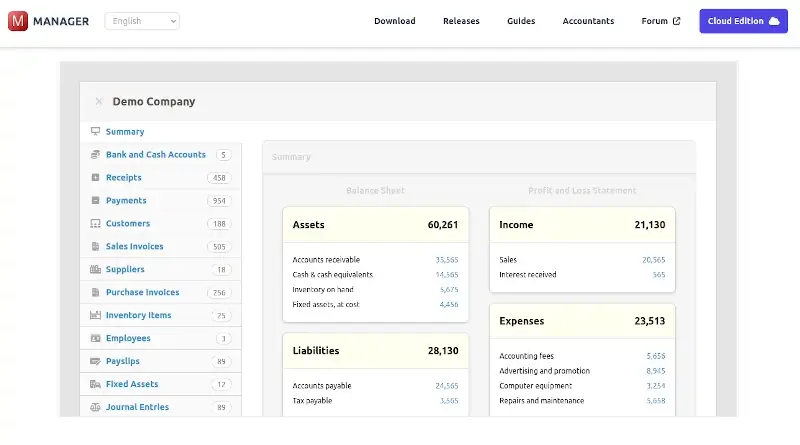
9. Frappe Books
Frappe Books is a free and open-source desktop accounting application that provides small businesses and freelancers with invoicing, payments, GST, and reporting features in order to categorically boost their performance.
It ships with OOTB financial statements, tex templates, customer and supplier modules, customizable charts, etc.
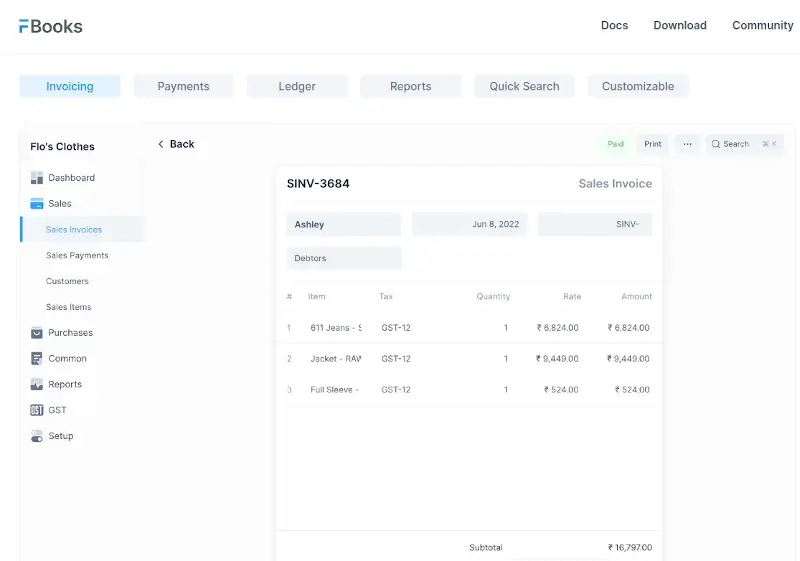
10. Grisbi
Grisbi is a free, simple, and open-source accounting software for managing finances. It was created over 14 years ago and has since been in active development to enable personal and small business owners to carry out simple entry accounting tasks.
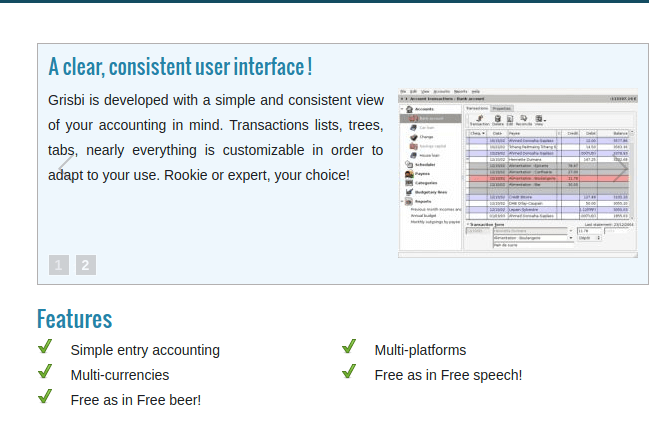
Conclusion
Now that you can pick an option from my list I assure you of an exponential boost in your business performance. All of them are designed to be flexible and powerful, yet easy to use.
Are there other awesome open-source accounting apps for Linux that are not included? Drop your suggestions in the comments box below.

What Linux needs is personal banking software. Accounting software is overkill and everything else pretty much sucks. I am still running Quicken 2000 under Wine because of that. The best replacement I have found is Gnucash, but again it is overkill.
Apps like jGnash and Skrooge are too limited.
In my opinion, the most resilient and convenient way is plain text accounting with, for example, ledger-cli.
What about Phreebooks?
Great Article, Thanks for sharing this article on Accounting software. Many unique points that have never crossed mind before. Very nicely summarized. I’ve subscribed to your feed for more such articles
Sorry, but there is no Linux option for Openmiracle, it’s just a Windows program. Nothing on their website is linux based.
Or am I missing something?
I don’t see where where openmiracle is a linux software, everthing I see is a ms sotware
And what about the iDempiere? – vide: https://www.idempiere.org/
This is web based so I guess it fits in as Linux?
https://www.invoiceninja.org/
Two excellent ones are missing from the list
Skrooge → https://skrooge.org/
KMyMoney → https://kmymoney.org/
Thank you
Those are considered personal finance software, not accounting software. I think both are too limited, but agree accounting software is overkill for personal finance.
What I dislike most about them is you enter everything into a text box that then puts it into the ledger. I want like Quicken direct entry to the ledger. I haven’t tried either in a long time, maybe there has been an improvement in that area?
@Jamess,
I understand your distinction between personal finance software and accounting software. It’s true that the entry process can be a crucial factor in user experience. Many personal finance tools have evolved over time, and some may now offer more streamlined entry methods.
It could be worth revisiting them to see if there have been improvements in that aspect. Quicken personal finance software, in particular, has a reputation for its direct entry to the ledger, so you might find it more in line with your preferences.
Keep exploring, and hopefully, you’ll find a solution that better suits your needs!”